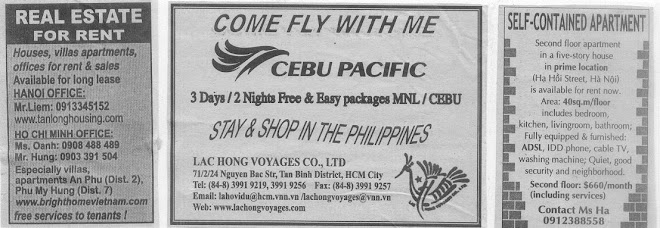Finding the ideal Realtor doesn't just happen by accident. It takes some research on your part.
An important rule of thumb is to shop for the Realtor first, the house second.
First, you want to talk with several Realtors from several companies to learn about the different options they offer. If you aren't completely satisfied with what one has to offer, talk to another.
The important thing is that you want a Realtor who will represent you to get the best home for the best money if buying, and if selling, provide a smooth transaction for the best offer.
One proven method for finding a qualified agent is by using referrals. If you have a friend or family member who recently had a positive experience while shopping for a house or selling their home, get the realtor's name and number.
However, even if you meet with a referred Realtor, you should make sure that Realtor is right for you.
Keep in mind that the real estate market has two very distinguished sides - the buyer's side and the seller's side. If you are selling your home, you are represented by a listing agent while if buying, you are represented by a selling agent, also known as a buyer's agent.
The selling agent seldom lists a lot of homes and focuses primarily on people buying homes.
These real estate agents are the ones that sell homes on the Multiple Listing Service (MLS), by the listing agent.
In most cases, an agent is on one side or the other, although some do split their time between the selling and buying sides.
One question is what happens if you find the perfect Realtor to help you buy your home. They have the same focus and priorities as you, they are very professional, and exactly what you've been looking for.
Great! Now what happens if this Realtor has a house for sale - the ideal house - everything you want? The bottom line is, this Realtor is working for the seller of that home to ensure the seller gets the best deal. Should you use this Realtor or find another one?
Unfortunately, this situation sets up the potential for a conflict of interest. Since the Realtor is under contract with the homeowner, they have an agreement to use their negotiating skills in selling the home. This can be done, but it's a little tricky.
If you should run into this situation, the agent would become more like a transaction facilitator than that of an agent and could work on behalf of both parties, however, this is not the ideal situation and should be considered carefully to ensure both seller and buyer, get the best representation.
Keep in mind that even when you find the "perfect" Realtor, there can, and will, be challenges.
Very seldom does the sell or purchase of a home go flawlessly. So be prepared to be met with obstacles and be patient as the Realtor works them out.
WHAT YOU SHOULD EXPECT FROM YOUR REALTOR
Working with a reputable Realtor is a huge advantage. Unfortunately, there have been many horror stories of first-time homebuyers being promised the greatest deal ever only to discover that the "Realtor" isn't even licensed or qualified to sell homes.
Although many people are successful in finding the perfect home on their own, most aren't. A qualified Realtor knows and understands the industry and therefore knows how to negotiate the best deal for you.
Their role goes beyond just helping the buyer find a nice home. They also act as a "sanity check" to ensure right decisions are being made and things are in order before, during, and after the deal.
Realtor's areas of expertise include:
Advertising
The Realtor can advertise properties if you're selling your home, for the buyer, the Realtor can show you listings on the Multiple Listing Service (MLS) as well as other media.
Marketing Strategies
Based on accurate information and specific properties, a Realtor will create marketing strategies.
Open Houses or Home Tours
The Realtor will hold a minimum of one, possible two open houses.
Recommendations
Throughout the process, the Realtor should be open to making recommendations and offering information.
Documentation
This covers the negotiations, contract, handling appraisals, closings, etc.
Keep in mind that when you decide to work with a Realtor, you aren't just working with one, you're working with thousands. Realtors network together, which strengthens the position of both seller and buyer. If you're buying a home, you won't just be looking at houses being handled by your Realtor, but the whole network of Realtors, thus increasing your odds of finding exactly what you want at the price you need.
A good Realtor will help you in setting up appointments with lenders as well as meet you at the appointment. They can offer great expertise in this area and will be a huge assistance. Once you locate your home, your Realtor can help you locate housekeepers, gardeners, and babysitters. Their work doesn't stop as soon as the closing is done. Good Realtors will remain in contact with you over the years should you ever decide to sell.
Additionally, below are some important guidelines you should follow when selecting your real estate agent:
Talk with your friends, neighbors, and co-workers who recently sold in your area. Whom did they work with, and were they happy? Would they use this agent or company again?
Go to open houses in your area and observe the listing agents. Do you like the way they are marketing the house? How knowledgeable are they about the house and the market? Are you comfortable with the answers they have to your questions? Are you impressed with their professionalism?
Take note of SOLD signs in your area. This is a sure indication of an active, successful agent.
Interview at least three agents. Try to find out as much about each as possible. Because you will be working closely together, you want to be absolutely certain that you are comfortable with your agent's style of doing business.
Here are some very important questions to ask your agent
1. What are your qualifications, experience, and education?
2. How long have you been selling real estate? How long in this area?
3. What is your track record? How many houses have you sold in the last three months? Will you supply three references from these sales?
4. How will you find buyers for my house? May I see a marketing proposal? Are you connected to a relocation network?
5. What if I'm not satisfied with your service?
Make sure you ask these questions to ensure you are working with a good agent.
Subscribe to:
Post Comments (Atom)





No comments:
Post a Comment